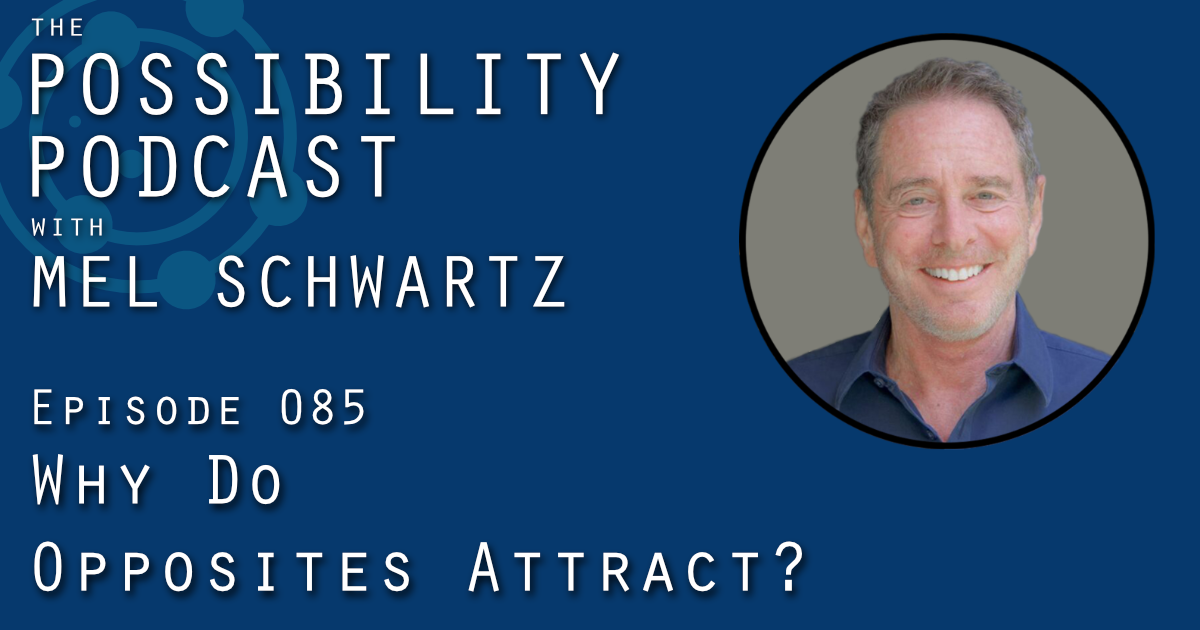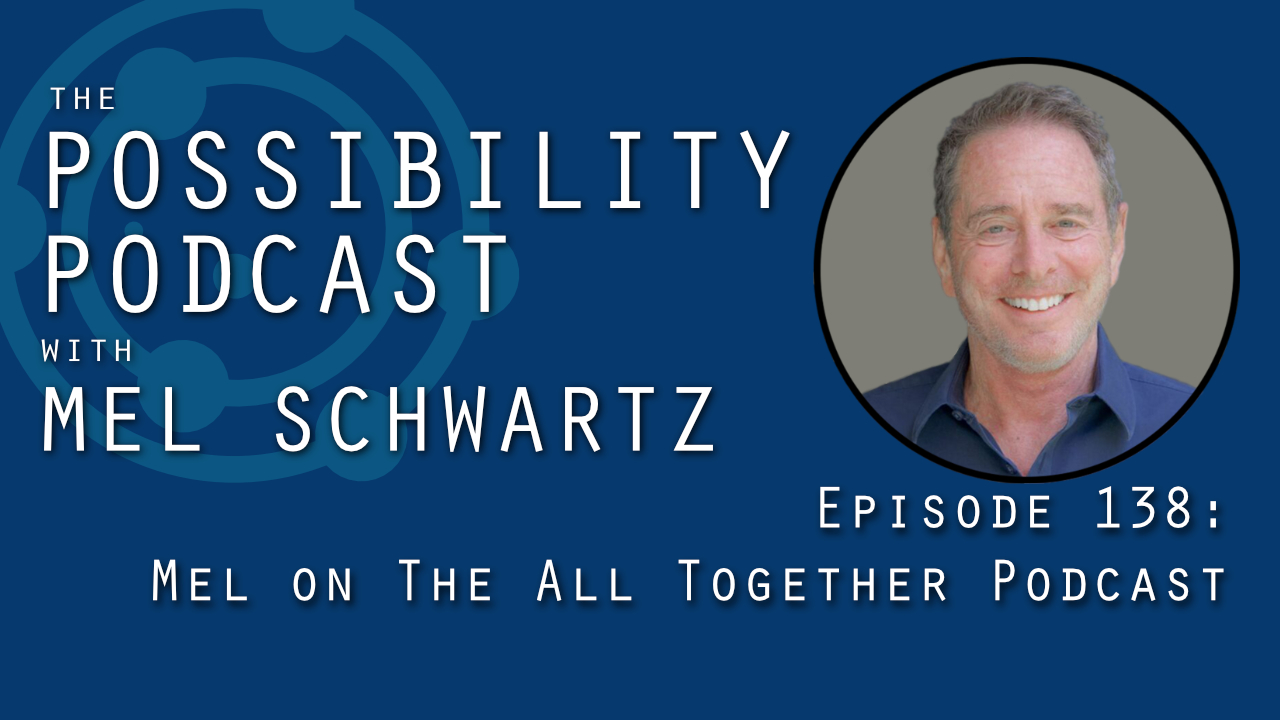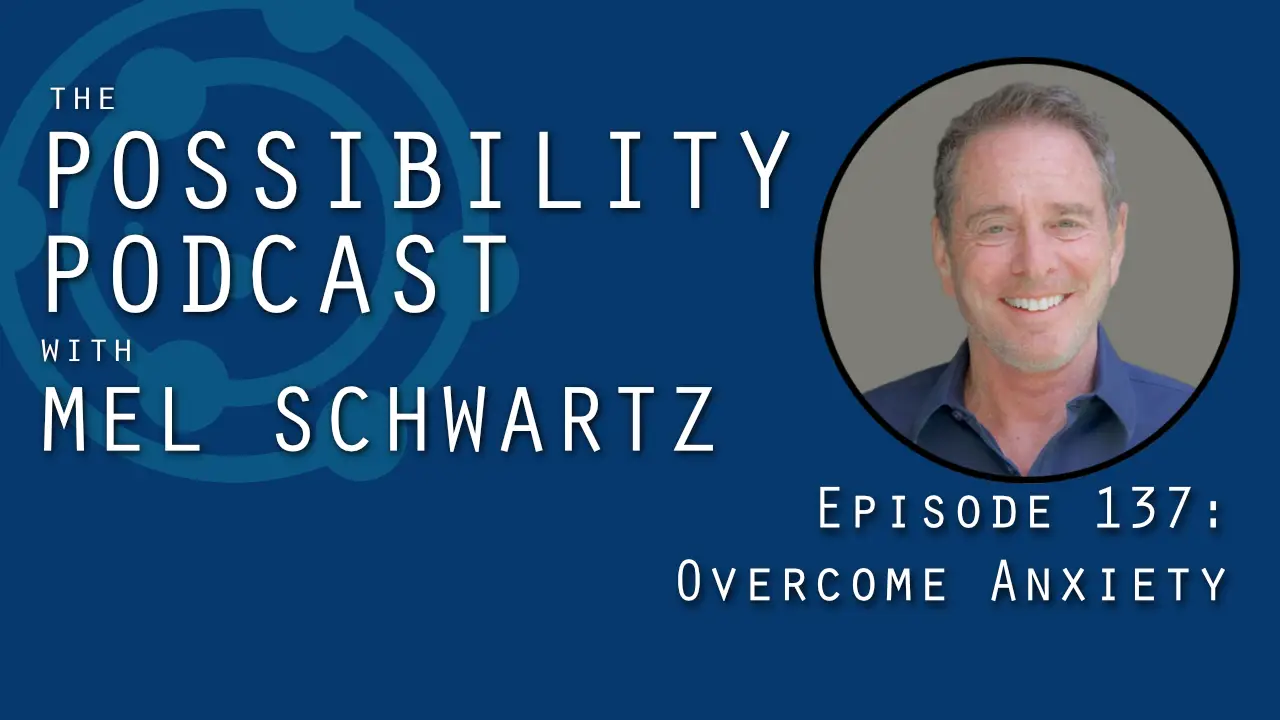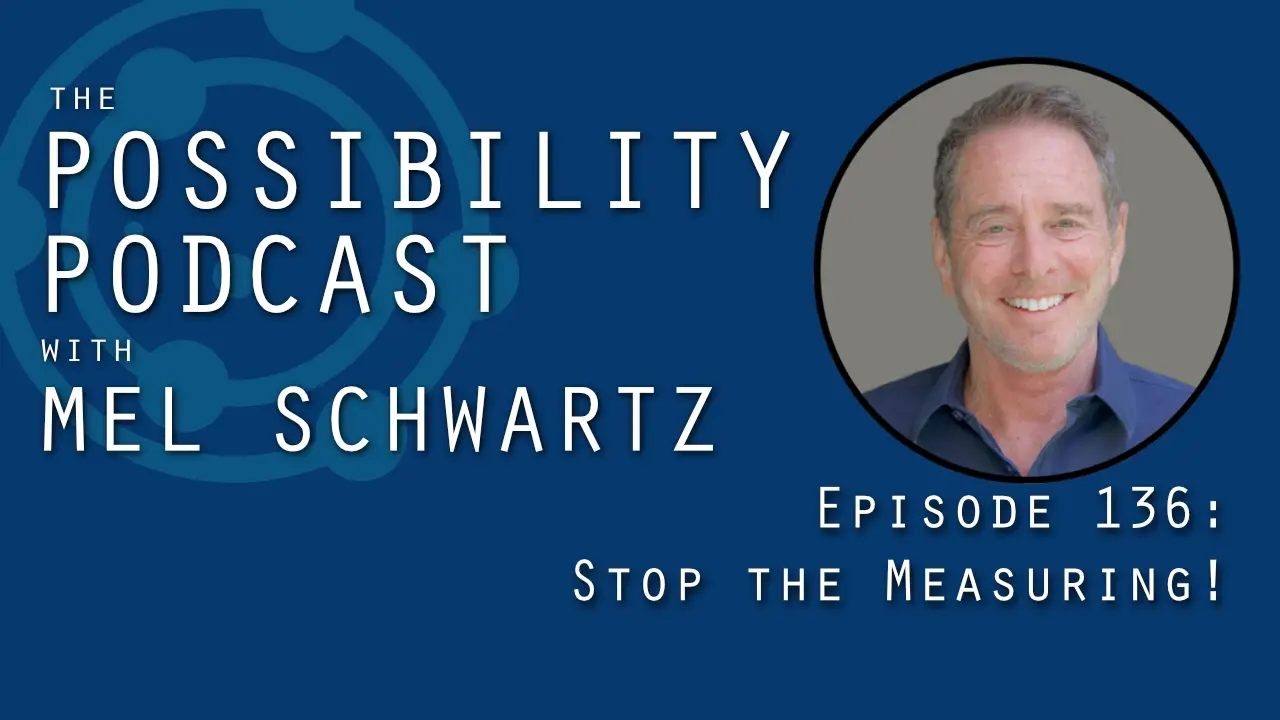Podcast: Play in new window | Download
Why are we attracted to our opposite number? Why is referring to our partner as “my other half” actually damaging to our relationship and ourselves?
In episode 085 of The Possibility Podcast with Mel Schwartz, I look at why opposites attract, at least initially, and we learn what we should really be looking for in a partner in a healthy, mutually supportive relationship.
Interested in bespoke marriage and relationship counseling from Mel Schwartz? Reach out!
Have you grown apart from a partner who could be described as your opposite or your “other half?” Or had a more complimentary relationship? Tell me about it… in the comments!
Subscribe to The Possibility Podcast with Mel Schwartz
Don’t miss a single Possibility Podcast with Mel Schwartz! Subscribe for free in iTunes / Apple Podcasts, YouTube, Spotify, RadioPublic, Spreaker, or wherever you listen to podcasts. Or, simply copy / paste the RSS link directly into the podcast app of your choice!
Please Rate and Review
If you enjoy The Possibility Podcast with Mel Schwartz, please take a moment to rate and review the show in iTunes / Apple Podcasts or Podchaser. It only takes a few minutes, and adding your review is as easy as clicking this link.
Your rating and review helps raise the visibility of The Possibility Podcast with Mel Schwartz, especially on iTunes / Apple Podcasts, which is one of the biggest podcasting platforms today. More visibility for the show means more listeners… and that growth means the show reaches — and helps — more people like you.
Thank you!
Talk With Mel!
Help others when Mel helps you: Contact Mel and find out how you can be a caller on the show and ask Mel a question. He’ll put the Possibility Principle to work for you, and your conversation will be recorded for use in a future episode of the podcast so other listeners can benefit.
Transcript of The Possibility Podcast with Mel Schwartz #084
Hello, everybody and welcome to The Possibility Podcast. I’m your host, Mel Schwartz. I practice psychotherapy and marriage counseling and I am the author of the book, The Possibility Principle, the inspiration and the companion to this podcast. I’ll be introducing you to new ways of thinking, a new philosophy and a new game plan for life and all of the infinite possibilities that await you.
Well, hello everyone. We’re going to be talking today about the phenomenon in relationships of why opposites seem to attract each other. You know that term “my other half,” we often hear in committed relationships or marriages or particularly long-standing marriages? One person refers to the other as “my other half.” Well, that’s not just a throwaway line. There’s something to that.
I often thought Why would I only want to be a half and complete myself with my other half? Isn’t that a problem in relationships? Wouldn’t it be better if two people met who felt like they were more or less whole? Instead of being attracted to my other half. Well, we’ll get back to that.
So, “my other half,” it makes me think about a half-moon. A half-moon is actually always full, the sun is shining on it. It’s a full moon but only half of it is lit up. So, we call it a half-moon. Well, the sun needs to shine on us in terms of our own enlightenment so we can move past the sense of incompleteness.
So, we can see that in relationships there is a natural attraction to my opposite. Now that works or can work for a period of time. Sometimes it works forever. And very often it falls flat on its face when one person starts to grow or change.
Before I move into that, let me share with you some of the deeper insights into this unconscious part of ourselves that lies buried in what Carl Young, the great psychiatrist, called your shadow.
So, what Jung was referring to in terms of the shadow is that the opposite of our own persona, of our own identity that we connect with, the opposite exists in our shadow and the goal in life is to bring the shadow into the light so we can begin to integrate it toward our own fullness.
You’ve heard me share in the past my stories narrative about my former marriage whereby I was attracted to my opposite as a young man. I was shy and introverted, not outgoing, and she was an extrovert and very sociable and the opposites attracting on many other levels completed each of us. The problem or perhaps the gift for me was that many years later when I had evolved and grown in any number of ways, I now saw her in an entirely different way. I no longer needed my relationship with her to complete me or make me feel whole, I was feeling whole within myself.
I had no reason to blame or fault my ex-wife but she hadn’t grown or changed much and therefore, this initial relationship built on opposites attracting no longer worked.
So, in Carl Jung’s urgings about integrating our shadow self, we can think of that as well as coming into wholeness. So, shadow self as an introvert in my shadow was an extrovert, the opposite of your own sense of self lies buried in your shadow. Some of those may be features that you don’t value or respect so the goal is not to adulterate yourself but when you’re feeling triggered or reactive in a relationship by someone else, what they are triggering in you is buried in your shadow.
I’d love to show you my appreciation for your subscribing to and rating this podcast by offering you a gift to one of the following The Power of Mind Alive Talk that I gave or one of my digital e-books, Creating Authentic Self Esteem, Overcoming Anxiety or Raising Resilient Children and lastly, Cultivating Resilient Relationships. Once you have subscribed, please send an email to Mel at Mel Schwartz. com and just let me know which gift you’d prefer. Thanks.
When your button is pushed, ask yourself what is it that I see in them or can’t tolerate in them that may be buried my own shadow. Try to bring some light into your shadow so you can grow. This creates an opportunity for your own growth.
Now, when one person starts to grow, let’s suppose we’re talking now about two half-moons, two incomplete people, two halves. When one person starts to grow, that’s going to create both crisis and opportunity for their partner. If you say saying to someone “you’re not who you used” to be should not be punitive or judgmental. If we grow, reflect, and emerge, we shouldn’t necessarily be exactly who we have always been before.
So, when your partner starts to change or grow, instead of hammering at them and saying you’re not who I thought you were, instead of engaging in crisis and conflict, look at this as opportunity. Two people who come together to complete themselves. When one person starts to change and grow, we have a crisis. This relationship will no longer work unless both people head down the path of growth.
This is one, just one, of the fundamental problems and why relationships become unhappy over time or fall into conflict. I’m not suggesting it’s the only reason by any means, as you know, it’s far more complex than that and communication plays a large role in all of this but it’s an opportunity when you see them change you have an opportunity to ask yourself what do I need to work on what do I need to change.
You know in my work as a couple’s counselor I often hear one person say, “it’s not my issue it’s his issue it’s her issue.” Well, there’s no such thing there’s no separation remember a relationship is a quantum entanglement. We are separate individuals but uniquely coalescing in a way where we can’t sort out the differences, a virtual entanglement.
So, if he has an issue, of course, it becomes my issue as well. Looking at it as his issue or her issue goes back to this “my other half.” Now, again, when you’re feeling triggered, take responsibility rather than blame the other person. Share your trigger.
What would that sound like? It might sound like, “you know, you’re always so calm and reflective and now you’re doing these deep analytical dives into yourself and it’s making me uncomfortable.” That’s sharing my trigger as opposed to trying to just shut down what I don’t see and don’t like. Don’t blame the other person. Identify your trigger. Identify what doesn’t feel comfortable or safe or loving and share how you feel.
By the way, if you’re listening to this and you’re not in a relationship, be really cautious about being attracted to your opposite. Work instead on moving toward your own completeness. Again, relationships would have an entirely different outcome and result if we worked on completing ourselves, or moving toward completion. I don’t mean to suggest we’re ever complete and we never should be. It’s a lifelong evolving process but literally taking the term “my other half” if we really step back and look at it is horribly judgmental about the other person and about my own self.
We fall into committed relationships often at such tender young ages and we don’t know ourselves well enough. We haven’t evolved enough. So if you’re not currently in a relationship work toward your own growth and evolving toward your own completeness and wholeness before you fall into the trap of “my other half” and as you grow and evolve, you should come to see that you start to become attracted not to your opposite but to the person who can reflect and embellish upon the qualities of yourself that you enjoy and like where you’re in a complimentary relationship which means there may be differences but you work toward enhancing each other rather than completing each other.
Well, I hope you enjoy today’s show look forward to speaking with you again soon and be well.
I hope you enjoyed this episode of The Possibility Podcast and I welcome your feedback on this or any episode. Please send me an email at Mel at Mel Schwartz. com or leave a comment in the show notes for this episode at Mel Schwartz. com. If you like what you’re hearing, please take a moment to rate and review the show at Apple Podcasts, Spotify, or wherever you get your podcast. Your reviews really help boost the visibility for the show and it’s a great way for you to show your support. Finally, please make sure to subscribe to The Possibility Podcast wherever you listen to podcast. In that way, you’ll never miss an episode and thanks again and please remember to always welcome uncertainty into your life as you embrace new possibilities.




